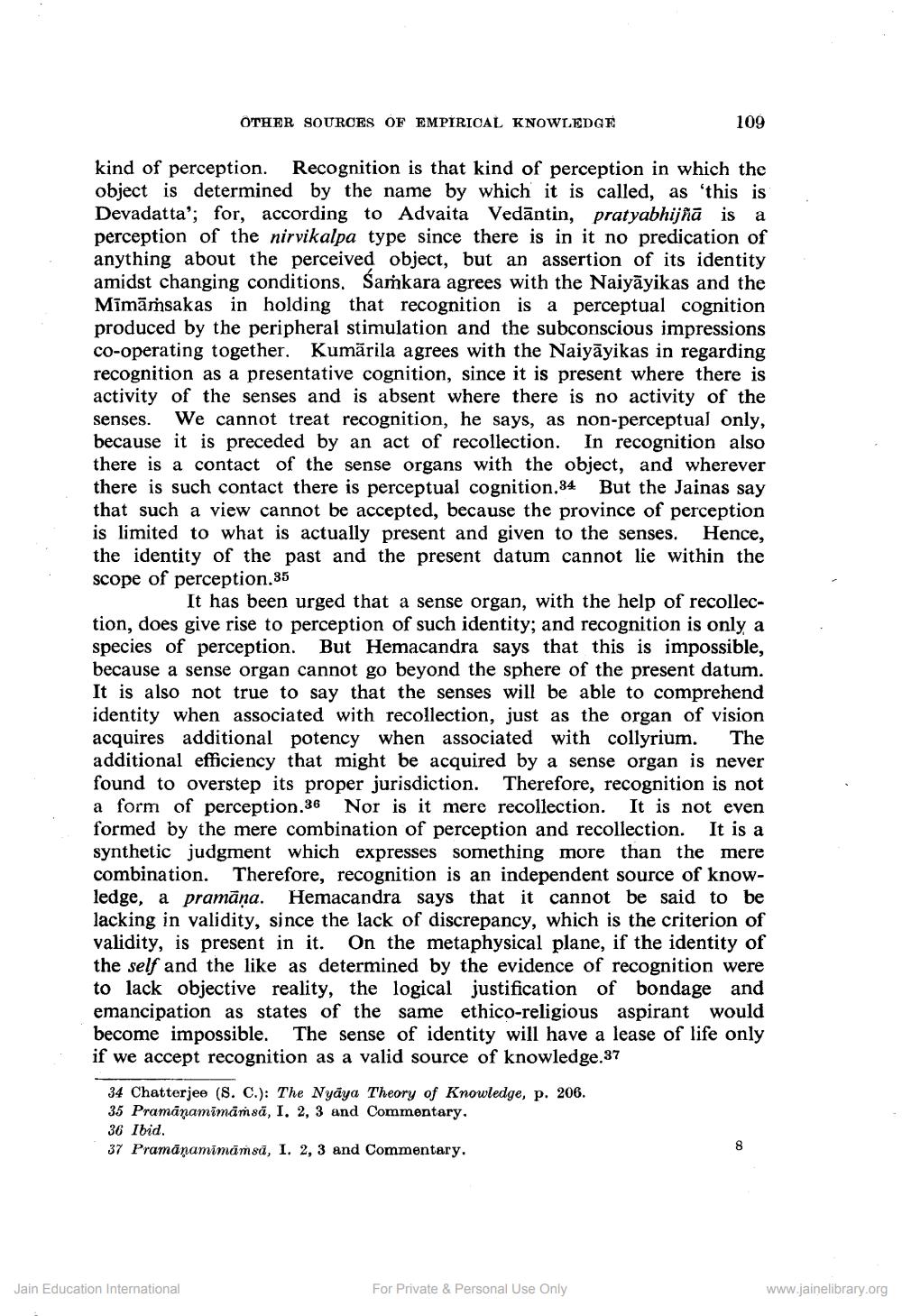________________
OTHER SOURCES OF EMPIRICAL KNOWLEDGE
kind of perception.
Recognition is that kind of perception in which the object is determined by the name by which it is called, as 'this is Devadatta'; for, according to Advaita Vedantin, pratyabhijñā is a perception of the nirvikalpa type since there is in it no predication of anything about the perceived object, but an assertion of its identity amidst changing conditions. Samkara agrees with the Naiyayikas and the Mīmāṁsakas in holding that recognition is a perceptual cognition produced by the peripheral stimulation and the subconscious impressions co-operating together. Kumārila agrees with the Naiyayikas in regarding recognition as a presentative cognition, since it is present where there is activity of the senses and is absent where there is no activity of the We cannot treat recognition, he says, as non-perceptual only, because it is preceded by an act of recollection. In recognition also there is a contact of the sense organs with the object, and wherever there is such contact there is perceptual cognition,34 But the Jainas say that such a view cannot be accepted, because the province of perception is limited to what is actually present and given to the senses. Hence, the identity of the past and the present datum cannot lie within the scope of perception.35
senses.
It has been urged that a sense organ, with the help of recollection, does give rise to perception of such identity; and recognition is only a species of perception. But Hemacandra says that this is impossible, because a sense organ cannot go beyond the sphere of the present datum. It is also not true to say that the senses will be able to comprehend identity when associated with recollection, just as the organ of vision acquires additional potency when associated with collyrium. The additional efficiency that might be acquired by a sense organ is never found to overstep its proper jurisdiction. Therefore, recognition is not a form of perception.36 Nor is it mere recollection. It is not even formed by the mere combination of perception and recollection. It is a synthetic judgment which expresses something more than the mere combination. Therefore, recognition is an independent source of knowledge, a pramāṇa. Hemacandra says that it cannot be said to be lacking in validity, since the lack of discrepancy, which is the criterion of validity, is present in it. On the metaphysical plane, if the identity of the self and the like as determined by the evidence of recognition were to lack objective reality, the logical justification of bondage and emancipation as states of the same ethico-religious aspirant would become impossible. The sense of identity will have a lease of life only if we accept recognition as a valid source of knowledge.37
34 Chatterjee (S. C.): The Nyaya Theory of Knowledge, p. 206.
35 Pramanamimāmsā, I. 2, 3 and Commentary.
36 Ibid.
37 Pramāņamimāmsā, I. 2, 3 and Commentary.
Jain Education International
109
For Private & Personal Use Only
8
www.jainelibrary.org




